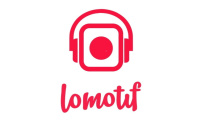Music of Wakanda is Africa's blank cheque
As the fame and fortune of Marvel’s blockbuster Black Panther spreads, so is African music. Black Panther is to movies what Obama was to politics. It has mainstreamed African culture and made it cool to come from Wakanda. But what does this mean for African music? Does the hype that this movie has generated only serve to make millions for Marvel or does it open doors for African music and African-themed entertainment content?
 The writer says Black Panther puts Africa in a good light for the first time.
The writer says Black Panther puts Africa in a good light for the first time.
When Swedish composer and producer Ludwig Göransson was tasked with the production of the film score, he came back to Africa for inspiration. In a YouTube clip dubbed The Making of Wakanda With Ludwig Göransson he explains how he followed Senegalese singer and guitarist Baaba Maal. In fact the opening score of the movie was inspired by Maal’s concert intro. It was performed by the maestro and by the talking drums of Massamba Diop.
As the franchise titillates more and more fans around the globe, it’s likely many will also take this journey to discover Africa’s cultural products. Kendrick Lamar’s Black Panther album is laden with African themes both in its audio and video presentations. Initially he was brought in to make a few songs but was so drawn in by the narrative that he did the entire album after just watching half the movie.
The lead single from the album ‘All the Stars’ featuring SZA is a tribute to Africa with stunning visuals in the video. The film score also involves various beats and songs by African artists such as ‘Gobisiqolo’ by Busiswa, ‘The Rhythm’ by Tumelo, ‘How Dare You’ by Professor featuring Mr Selwyn and ‘Wololo’ by Babes Wodumo and Mampintsha.
For the artists whose songs were featured in the film, the benefits are obvious and immediate. For the rest, however, it is more of a foot-in-the-door situation – a new window of opportunity for the discerning. Music, like fashion, is a cultural product, whose demand is driven by perceptions. Up until now, a majority of movies depicted Africa in a bad light and created negative perceptions. They adversely affected the demand of Africa’s cultural products.
But Black Panther has done the exact opposite, going out of its way to paint Wakanda as the most technologically advanced state in the world. Though fictional and utopian, it endears audiences to the glory of Africa like never before. Already the Black Panther hype has begun creating demand for African fashion, with shops that sell African attire recording a spike in sales. Major media outlets and morning shows around the world have been shining a spotlight on African fashion. Nigerian-born designer Yetunde Olukoya was featured on Fox 11 Los Angeles News on 3 January with the tagline, “Here to show us how to take looks from the magical land of Wakanda to the rest of the world for opening night.”
The marketing power of the film is undeniable. It’s the reason companies invest millions in product placement. The 1986 Tom Cruise movie Top Gun is reported to have increased Ray-Ban sales by 40% in seven months and upped US Navy recruitment by 500%. Sales of the Chevrolet Camaro were also reported to have shot up after the car featured prominently in the Transformers movie of 2007, while the Matrix made the Nokia 8110 slider phone a marvel of its time.
Weaving subliminal messaging in a film’s script is a proven demand-creation strategy. In the same breath, consider Black Panther a billboard for African music. On top of its spectacular African visual representation, the movie relies a lot on music to tell its story; it curates music from various black cultures. It brings together African-American music, traditional African and African pop in a package that encompasses the best of African culture.
Wakanda and everything it represents is a blank cheque to the African music fraternity. For the first time the spotlight is shining on Africa and it’s our turn to call the tune. What we do with the opportunity, however, is what determines how far African music will go.















Commentaires
s'identifier or register to post comments